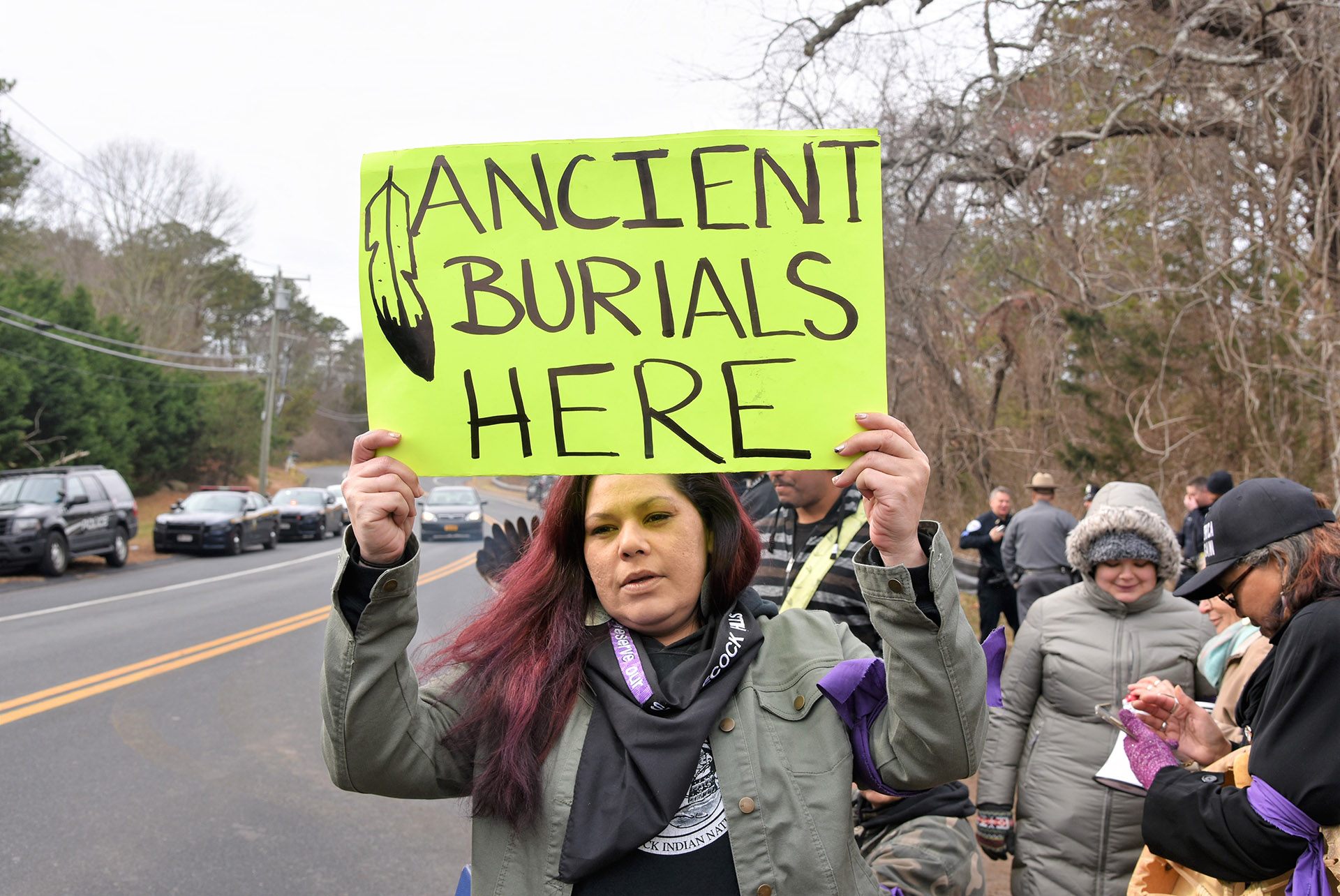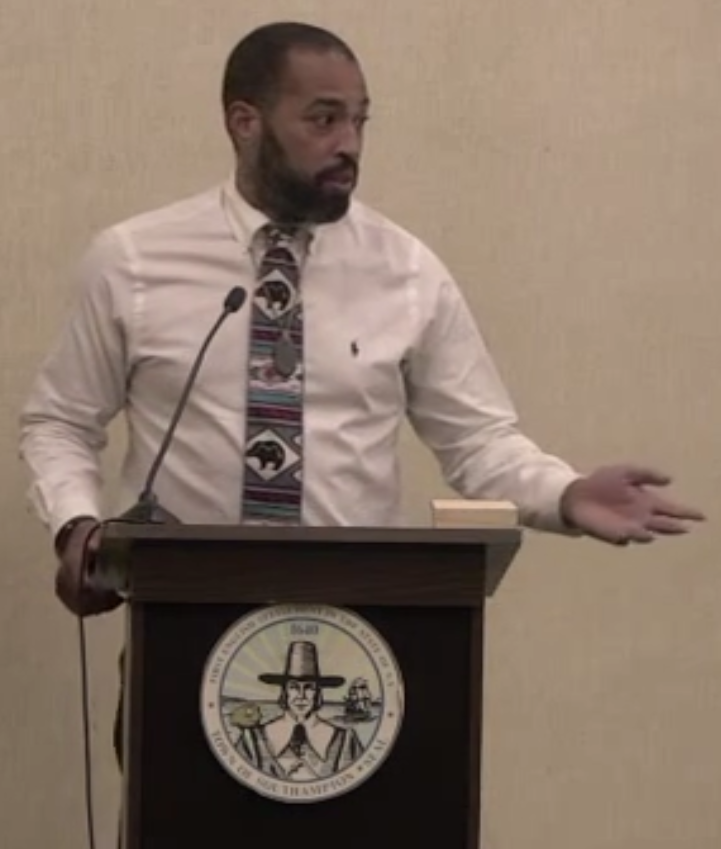Sacred Ground: Land Deal Urged to Save Shinnecock Burial Site

The East End has no shortage of celebrity-soaked multimillion-dollar land deals, but one recently proposed $5.3-million transaction that Pink Floyd singer Roger Waters is urging would also address the history of injustice the Shinnecock Indian Nation has endured.
The British prog-rock legend who owns a home in Bridgehampton joined advocates in urging Town of Southampton officials to spend that sum to buy the development rights to Sugar Loaf Hill, the tribe’s most significant burial ground in the Shinnecock Hills section of Southampton—some of the most prime real estate on the East End and beyond.
“I am a new neighbor to this community, I’ve only been here about 20 years, but standing outside on the pavement with my friends from the Shinnecock Nation … I found myself deeply moved and somewhat in awe of the gravity, but also the potential for joy, that is in front of me here,” Waters told Southampton town board members on May 25 at its first in-person board meeting since the coronavirus pandemic began. “This is a momentous occasion. I am over-emotional about it … I will remember this day for the rest of my life because I think it’s incredibly important to this community and to all of us who are here and are lucky enough to be a part of it.”
Tribal and local leaders described Sugar Loaf Hill as one of the most historically significant Native American sites in New York State. The tribe’s ancestors dating back about 3,000 years are buried there.
At the top of the 4.5-acre plot in question sits a more than 7,000-square-foot mansion with a Montauk Highway address owned by the Nappa family. The listing invokes Long Island’s literary past, describing the property as “something out of Frances Hodgson Burnett’s The Secret Garden,” the required reading that was penned in Plandome more than a century ago.
News of the deal comes after the Southampton Town Board passed historic legislation in September to protect unmarked Shinnecock graves and burial sites, the first law of its kind across the state. The Protection for Unmarked Graves Act established a set of protocols if human remains are encountered during construction activities anywhere in the town. Penalties for not complying with the law include a fine of at least $10,000.00 or 15 days in jail.
Under the Sugar Loaf deal, the nonprofit Peconic Land Trust, an environmental conservation group, is in contract to purchase the property, demolish the house, and return it to its natural state. The deal is expected to close on June 15. The town would tap the Community Preservation Fund (CPF), which is fueled by a 2% East End real estate transfer tax, to purchase the development rights on the land.
Lisa Kombrink, an attorney who manages the town’s CPF funding, noted that the area has been recognized for its “unique cultural and archaeological significance” in the town.
“The development rights easement would preserve the property for use as open space while also recognizing the cultural and ecological importance of the property to the Town of Southampton,” Kombrink told the board while detailing the proposed purchase. “It would provide for a pedestrian trail … so that the public could also enjoy the property.”
Peconic Land Trust’s founder John v.H. Halsey also emphasized to the board the importance of the town following through with the plan to help right historical wrongs.
“It is a sacred place, one that has been documented and desecrated since the 1930s, with the remains of Shinnecock ancestors and their parting gifts moved and distributed—some to renowned institutions,” Halsey said, noting that an even larger neighboring property is also being eyed for purchase by the land trust. “This is a unique opportunity to build greater trust between the town and the Shinnecock people.”
He added that remains and historic artifacts that were removed from the area will be reinterred on Sugar Loaf Hill.
Members of the tribe and their supporters were out in force at the meeting urging the town to allow the deal to move forward.
“A lot of time on Shinnecock we talk about what’s called historical trauma,” said Bryan Polite, chairman of the Shinnecock Indian Nation. “It’s something very real. And every day we have to witness another historical trauma when we see our land being desecrated and our ancestors bones being disturbed.”
While most who spoke before the town board remained diplomatic, others recounted in vivid detail the cause for outrage that led up to the historic land deal.
“If I went anywhere in the world and said, ‘Hey just to let you know, I think this would be a really nice place to live, so I’m going to tear down your ancestors’ graves and put a mansion on top of it,’ I guarantee you we would be met with public fury,” said Skylar Johnson. “But yet that’s what’s been done. And then we have to come out here and we have to ask that it be undone. That we make a slight change to just honor the people that live here.”
Southampton Town Supervisor Jay Schneiderman indicated that the town would advance the measure at its June 8 meeting.
“It’s hard not to be moved when you’re there,” he said. “To not feel a sense of something very spiritual, mystical.”
-With additional reporting by April Garnock and Taylor K. Vecsey




